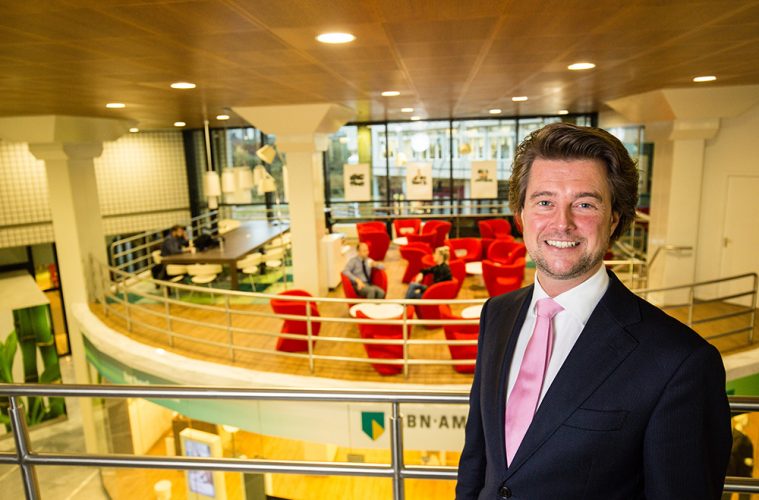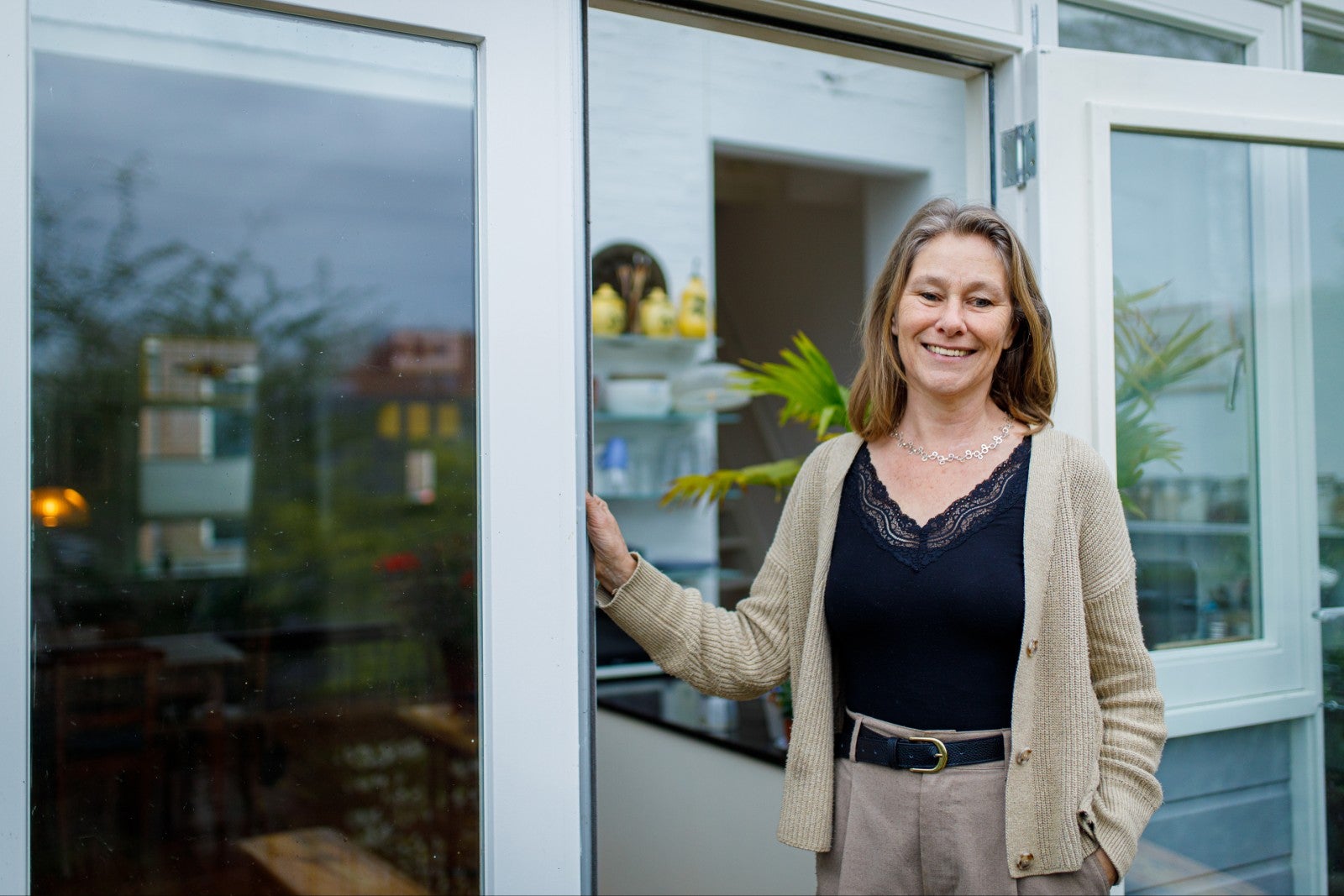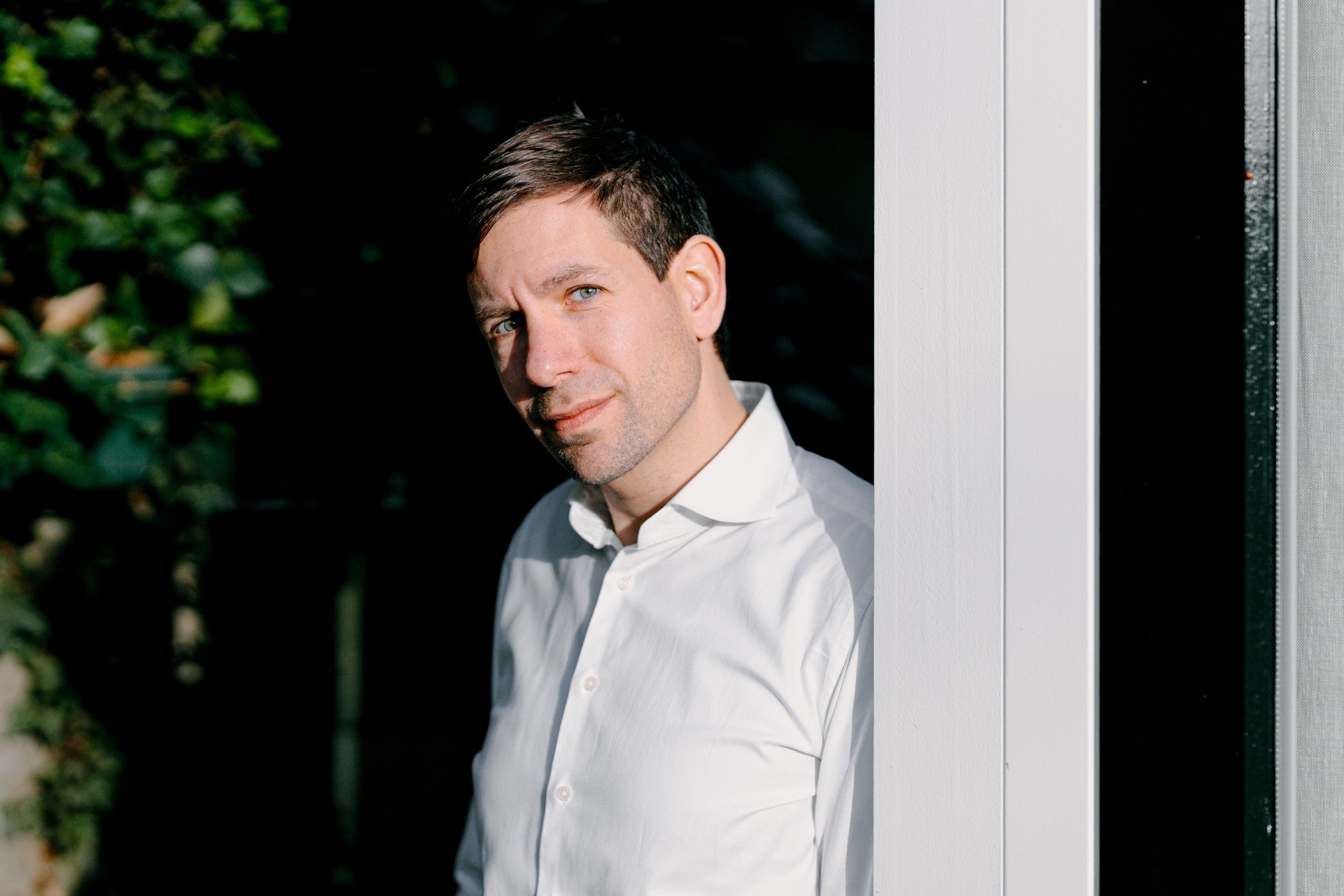‘Conform a bit more’ is familiar advice to Law alumnus Jeroen van Gelder. But the Regional Director of ABN AMRO has his own leadership style, and isn’t afraid to go against the current. That gives him plenty of energy, committed employees and good results, but his unconventional approach occasionally generates resistance.
What is so unique about your leadership style? “Many companies are still hierarchical and focused on numbers. But my vision is: if you have a commercial goal, don’t focus on the goal itself; focus on the attitude and behaviour you need to achieve that goal. I never ask my co-workers about the progress of their work, and I never throw numbers on the table. There’s no point in that. You can’t force good results; they come from the behaviour and attitudes of the people themselves. You can only encourage them to bring out the best in themselves by giving them the maximum of trust and freedom. To do that, I always use open questions like: ‘How are you doing? What do you need? What do you want to do? What can I do to help you?’ Working that way requires a solid foundation of trust.”
How do you create that trust? “By getting to know one another very well. I always invite new teams to my house for breakfast and to tell my life story; who I am and what made me that way. We talk about things like my youth, my education, what things I run into in relationships, and the choices I’ve made in life. That in turn helps the others to feel free to do the same. We spend the whole day talking about very personal subjects, so you really get to know one another and understand each other’s behaviour better, which creates a strong bond of trust. That’s vital if you want to achieve something together.”
‘I display trust when things are going well, but I always stand behind someone when things don’t go as expected’
Why does that work so well? “When you trust people, they assume responsibility on their own; it’s a law of nature. It’s up to you; you have the trust and freedom, without someone looking over your shoulder, so your only option is to take responsibility on your own. If someone comes to me with a new idea, my answer is always; ‘go for it!’ I display trust when things are going well, but I always stand behind someone when things don’t go as expected. That’s the moment a real leader can make the difference.”
“That style also suits my personality: I’m enthusiastic, daring and I think it’s important to build good relationships. The fact that I can be myself in my work gives me tons of energy.”
Do you see the effects of your approach in the results? “I’m responsible for Income & Wealth in the region West, one of the three regions of ABN AMRO in the Netherlands. We advise clients on their income and wealth issues. Each year, we measure the employee satisfaction at ABN AMRO, and my teams are among those with the highest scores. It’s a law of nature that if people are committed to the company they work for, then the customers will feel it and experience it as well. Our team has already realised or exceeded our goals for this year.”
‘Respectful manners can save you a lot of legal problems’
Displaying trust sounds great, but what do you do when someone doesn’t perform well? “Then I ask them how they feel things are going, and they always say: ‘Not so good, really.’ People can tell for themselves when they aren’t doing well. When you ask them about it sincerely, you get honest answers, and then you can look for solutions together. Several people I’ve led have either transferred to other positions or resigned voluntarily. Respectful manners can save you a lot of legal problems.”
At the VU, you’ve been involved with the programme The Boardroom, in which 20 Master’s students attend master classes from VU alumni. What do you aim to teach the students? Universities and banks are both organised hierarchically, and that worries me. I’m closely involved in the selection of trainees for ABN AMRO, and I’ve noticed that students’ emotional intelligence is often insufficiently developed. When we turn them down after a selection day, it’s never due to their IQ, but rather their lack of self-reflection or empathy. Very few people have a good answer to the question; what experiences in your life so far have made you who you are? Or: why are you here? Answers like: ‘Because I have ambition and want to develop myself’ are really unsatisfactory.”
“Universities should pay more attention to those aspects, because they’re so important in being able to work together with others. For example: the fact that nobody asked for your input until late in a project might give you a bad feeling, but it doesn’t say anything about the quality of the plans made so far. The question then is: can you step over your own ego, or will you try to torpedo the plan to make yourself feel better?”
‘Many people conform out of fear of losing their job. But I’m not one of them’
“My goal in the master classes is to get the students thinking. I’ve invited them all to my house, like I do with new teams, and we’ve shared our personal stories. The students reacted very positively, and I’m sure that the evening will help them work together in teams. It’s the foundation for the subject that we’ll be talking about during the master class in early February; that trust is something that only you can display.”
How do your colleagues react to your work method? “The people for whom I’m responsible are happy with it, but those above me or next to me in the hierarchy aren’t always pleased. I’m occasionally told that I have to conform more. But I think it’s important to stay myself, because they hired me because of who I am. Diversity isn’t just about men versus women, or different cultural backgrounds; it’s also about different personalities.”
“I can assume a critical attitude during discussions, but I always criticise the content, never the person. In a sector and organisation that is shrinking, and where reorganisations follow one another at a rapid pace, people can develop a certain degree of fear. Many will respond by adjusting and conforming to keep their jobs. But that doesn’t help; in fact, I’m convinced that it pushes us away from making the changes that we desperately need.”
How do you deal with that friction? “I’ll never undermine a decision once it’s made, but until that point, I’ll conduct a lively debate on the matter, because that’s what the bank and the financial sector as a whole need.”
“I’m also a fighter, which is something I got from my mother. My soft, empathic side is from my father. I combine the two contrasting personalities: my leadership style is soft, but I’m willing to fight for it.”
‘I’ve recently told my colleagues that I’m considering retirement’
“As I’ve said before, some of my colleagues conform out of the fear of losing their jobs, but I’m not afraid of that. My job isn’t everything to me. I rarely work during the evenings or weekends, for example, and I’m not worried about my social status, so that gives me a lot of freedom.”
Do you have any plans for the future? “I’ve recently told my colleagues that I’m considering retirement in the near future. My plan is to sell all my stuff and spend the rest of my life travelling with my girlfriend. I’ve had that plan in my head for the past ten years, and now I have enough saved up to take that step.”
But things are going so well! “Things are indeed going very well, and I could happily continue doing this for years. But life is so short, and while you’re working away at your daily routine, time is slipping between your fingers. If you were to ask me what I did at work just a few weeks ago, I wouldn’t be able to tell you. But I still remember every day of my travels, because you live life more intensely while you’re travelling. I want to suck the marrow from life; to absorb it. It’s a big step, and it’s led to discussions about yet another possible job. So I’m facing an important decision; should I take on one last assignment? I haven’t decided yet, but one thing is certain: sometime in the next three years, I’m getting out to see the world.”

Jeroen van Gelder (1977) doesn’t like CV s, so none will be provided here. Would you like to learn more about Jeroen and his work, or to meet him in person?






